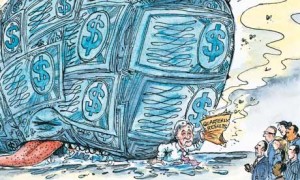 In class 2 Marketing Meeting Accounting, the idea that all U.S manufactures are paying a huge amount of money for health-care is introduced by Detroit seeks health-care refit. Recently, a blog post on how small businesses get through the dilemma of paying health plans has caught my eye. In the blog Study Finds Small-Business Health Plans Are Cheaper on SHOP, the blogger shares the information that it saves more for small business to purchase insurance premiums on SHOP exchanges, by comparing that with premiums for insurance purchased off the exchanges.
In class 2 Marketing Meeting Accounting, the idea that all U.S manufactures are paying a huge amount of money for health-care is introduced by Detroit seeks health-care refit. Recently, a blog post on how small businesses get through the dilemma of paying health plans has caught my eye. In the blog Study Finds Small-Business Health Plans Are Cheaper on SHOP, the blogger shares the information that it saves more for small business to purchase insurance premiums on SHOP exchanges, by comparing that with premiums for insurance purchased off the exchanges.
I find this blog useful since it puts its focus directly at health care issue, “a competitiveness of the United States issue” declared by Mr. Cowger, president of GM’s North American operations. It offers an insightful analysis for small businesses to decide whether to purchase its health-care insurance on SHOP, or on the off-exchange plans. Pointing out both advantages and disadvantages of SHOP plans, the blog serves as a guideline for small businesses to purchase health-care plans, in order to avoid suffering from stress of paying for those insurances as some main manufactories in U.S. are facing right now. As a result, this unbiased blog really draws my attention on health-care issues and as a person who wants to pursue entrepreneurship in the future, this blog is a great resource to put in bookmark bar for future reference.
Reference of the image: <http://insurancepedia.net/wp-content/uploads/2010/06/index.jpg>

Recent Comments